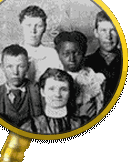- Papers and pencils Highlighter pens Internet access
Preparation
Download Source 1: Charter of Privileges and Source 2: First Frame of Government. Make copies for every student in your class or have them access the links from the Student Resources page. Gather an ample amount of highlighter pens so that every student can use one during the reading of the Charter of Privileges.
Day One
Introduce William Penn and the founding of Pennsylvania. Explain that William Penn based his colony on a standard of religious tolerance for all of the inhabitants of the state. He developed a framework for the government, which became a model for the government of the United States. Give students a copy of the "Charter of Privileges." Ask the students to examine the rights that William Penn afforded the citizens of Pennsylvania. Students should highlight the passages where they see Penn guaranteeing Pennsylvania's inhabitants" rights. Create a list of the privileges that the people of Penn's colony were afforded.
Day Two
Review yesterday's lesson. Include the First Frame of Government in your lesson today. Read the Frame of Government with the students and allow them to highlight the passages where they see Pennsylvanians are guaranteed rights. For this session, ask them to interpret the way in which Penn's secured representation for the people of his colony. Who had the power in early Pennsylvania? Who had a voice in government and the way laws were made? Who had the ultimate power? Students will probably need help in interpreting the language of these documents.
Day Three
Today should be a day of reflection. Students should compile their information on Penn's earliest agreement with the settlers to look at the fundamental elements of this contract. There are some main points that you will want to cover in your discussion:
- William Penn allowed anyone to live freely in his colony as long as they worshipped God. (Voting rights were not given to non-Protestants)
- This charter granted power to the people of the colony. They were allowed representation in the Assembly.
- Ultimate veto power was granted to the governor of the colony.
Students should view this governmental framework in light of the politics of the time. Religious tolerance and representative governments were a fairly new phenomenon. In fact, this colony was called Penn's "holy experiment" as a result of the modernity of the idea.
Day Four
The students must come together to create a "Class Constitution." Remind them that they must decide on the freedoms that they will grant to the students of the class, and the governmental structure that will work best for their class. Ask, do they think people will take advantage of certain freedoms? Do they think some rights must be guaranteed to every person in the class? Is there a governor? Will the governor have veto power?
Ultimately, the students must decide the privileges, responsibilities and power of each individual member of the class. Ask the students to live by their constitution for a certain period of time. For example, allow the students to govern the class by their constitution for one week.
Each day give the students a new challenge to face as a class.
Examples:
- One person in the class wants to have recess before lunch, another wants recess after lunch.
- The class library is disorganized. Who is responsible? How should the class decide on consequences for these students?
- The lunchroom is too loud and students can't hear each other at their lunch table. How will they take care of this problem?
- Think of some challenges that are unique to your school. Present the students with these issues and allow their constitution to work.
At the end of the week assess the positive and negative aspects of their governmental framework. If there are changes to be made, how do they decide what to change? Does everyone need to agree before the changes are enacted?
These are big ideas for fifth graders, but this will give them a glimpse into the responsibility that Penn had in creating his framework for the governing of Pennsylvania.
Day Five
Assess the students by asking them to write a reflective essay. Ask them to draw upon what they learned the past week to understand the issues that William Penn faced in creating a government for his colony. Give them the following guiding questions for their essay:
- In what ways was the Charter of Privileges unique?
- What rights were granted to the people of Pennsylvania that you agree with?
- Do you disagree with the Charter of Privileges in any way? Why?
- What was most difficult about governing the class by a "Class Constitution?"




